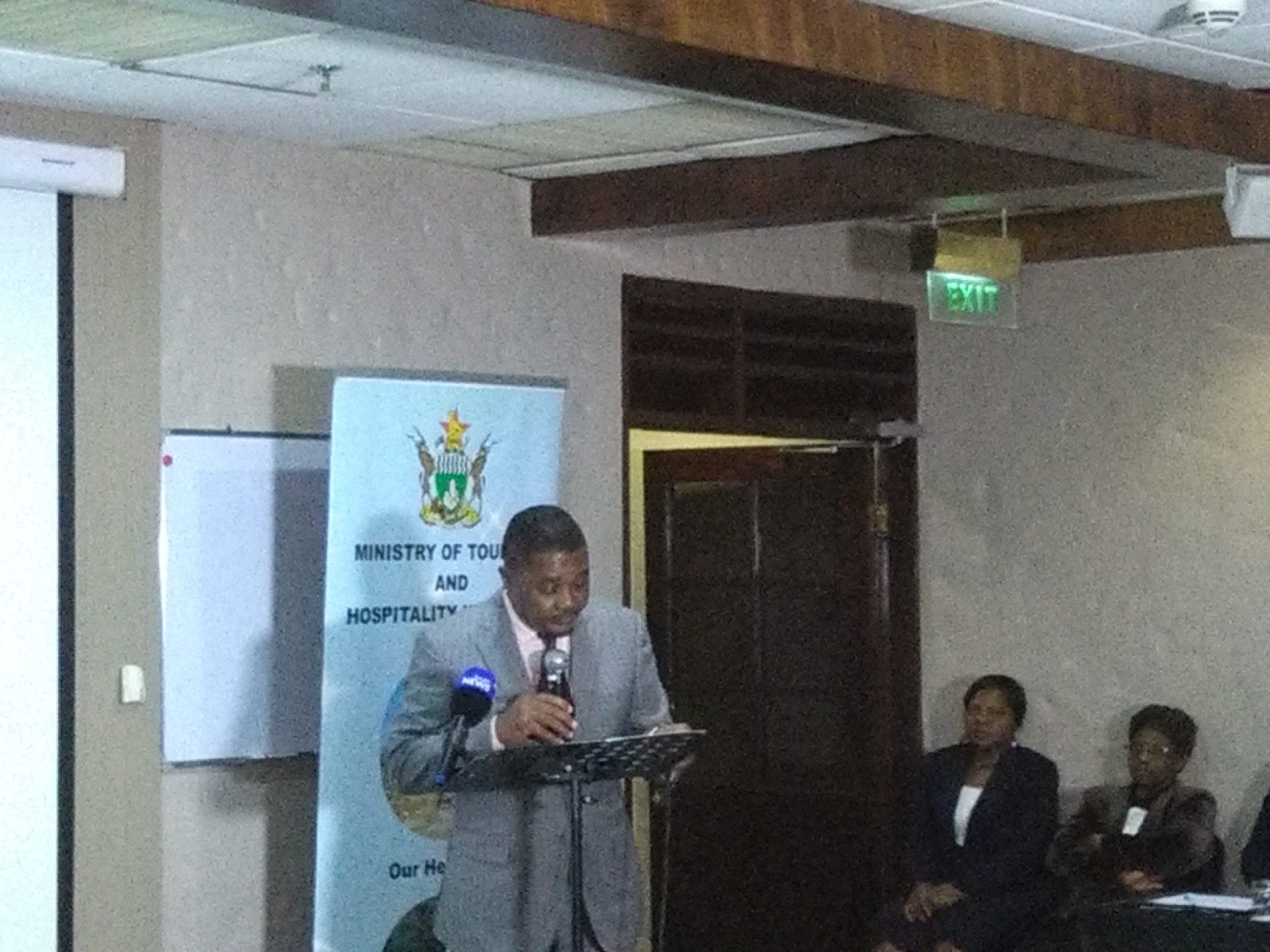By Byron Mutingwende
The National Tourism Master Plan will chart the way forward for the development of the sector, a Cabinet minister has said.
“As we gather around in this room, this morning, to unpack the contents of the National Tourism Master Plan, that Government has developed, I dare say that this document we have, encapsulates and ingrains our thinking for the future growth of the tourism sector in Zimbabwe. It is or thinking room, and we have invited all you key stakeholders to start with because you will have a lot more to do during the implementation of this Master Plan. Hence the more you understand it the better for our tourism sector collectively going forward,” said Walter Mzembi, the Minister of Tourism and Hospitality Industry at a stakeholders’ sensitisation workshop on the document held in Harare on Wednesday 13 July 2017.
Mzembi said the National Tourism Master Plan would work as a guide in product development and diversification, infrastructural and manpower development, community participation and preservation of nature, culture and heritage. If fully implemented the plan would result in the rapid growth and success of the sector within the context of increasing tourist arrivals and income.
The minister added that the National Tourism Master Plan goes beyond identifying the traditional tourism sites to other zones with the potential for tourism development across the ten provinces of the country.
“During the colonial era, tourism used to take place in a constricted band along the Zambezi basin mostly, in Victoria Falls, Kariba, Mana Pools and other few selected areas. With this Master Plan we have identified new growth frontiers of Tourism in all the provinces and what needs to be done to grow the tourism cake.
“We do not doubt the nugget status of Victoria Falls as a tourist destination, but we have taken an overall growth strategy – that of new growth frontiers in all provinces anchored on geographical spread of tourists from our tourism nuggets. Hence in total there are 11 Tourism Development Zones identified including how we have to make communities benefit from this growing tourism industry,” Mzembi said.
He urged the Master Plan to find its way into provincial development plans and Local Authority Plans. Much of tourism happens within the Rural District Councils hence the need for a partnership between local authorities and tourism palyers.
It was found out during the data gathering stage of the Master Plan that the major weakness in the past was the lack of mainstreaming of Tourism into provincial and local authority plans.
In that regard, there were calls for the provincial dissemination of the Master Plan and cooperation between Provincial Development Committees and the Ministry of Tourism.
Such cooperation will drive the implementation of the master plan and ensure to shape the developmental aspirations starting at local level.
Speaking during the same occasion, Thokozile Chitepo, Tourism and Hospitality ministry’s Permanent Secritary said tourism planning and development is not a preserve for her ministry alone, but everybody’s business.
Chitepo revealed that through funding availed by the African Development Bank under the Youth and Tourism Enhancement Facility, the ministry was able to engage Keios Developing Consultants to come up with the Master Plan. The bank also bankrolled extensive consultative workshops and site visits made around all the ten provinces of the country for the development of the National Tourism Master Plan.
Anastancia Ndhlovu, the Deputy Minister of Touroism said the master plan would direct all tourism development in the country including depicting investment opportunities in Zimbabwe.
“However the document itself is far from being counted as an achievement. Beyond its development is the need for collaborative efforts from all government departments and the private sector in order to ensure implementation of the Tourism Master Plan. As we have always stressed, tourism in Zimbabwe is government led and private sector driven, hence the government has led the development of the National Tourism Master Plan, and the private sector should now drive its implementation,” Ndhlovu said.
The researchers said the development of tourism was being hampered by the poor state of the roads and deplorable signage. An underperforming economy with an insignificant middle class and a few rich elites and the majority of a poor population makes it difficult to promote domestic tourism.
